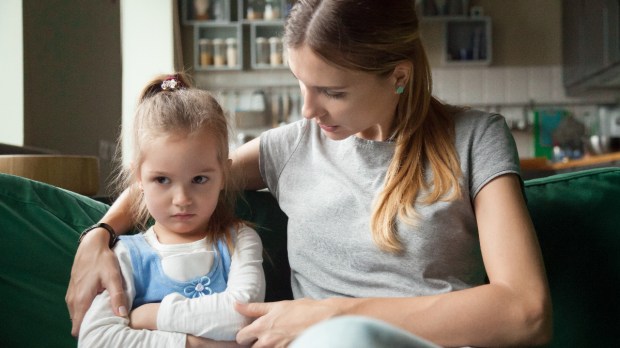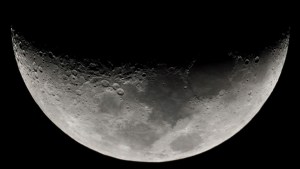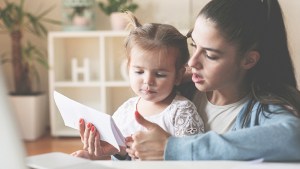My preschooler’s tee-ball practice was going pretty poorly a few weeks back. All the kids were in a real mood. They were ignoring their coach, climbing up the fence, kicking dirt at each other, rolling on the ground, and generally being total pills.
Coach wisely ended practice early, and as we were chatting after practice, he said something that caught my attention.
“I’m not surprised they’re all acting like this,” he said. “It’s the full moon tonight.”
“Uh … yeah …” I said, totally confused. What on earth could a full moon have to do with little kids acting much more unruly than usual?
I wondered if this was some sort of astrological new-age nonsense, but I couldn’t help a quick Google search. What I read was totally fascinating.
The idea that the full moon affects human behavior goes back to ancient times. In fact, it’s the etymological root of the word “lunatic”!
There is little hard evidence to back up this ancient belief, but it remains highly popular. I’ve heard a nurse friend say that hospitals are always busiest during the full moon, and teacher friends report a change in behavior in their students during the full moon. So even though the research is inconclusive, the folk belief is very persistent.
What I did learn might help to explain what the coach and I noticed at baseball practice that day. There is some evidence that the full moon negatively affects the quality of sleep, according to Healthline:
Interestingly, one 2021 study found that people fell asleep later and slept less overall on the nights before the full moon. Other research suggests that the full moon may be associated with less deep sleep and increased REM (rapid eye movement) latency.
Anyone who has kids knows that poor sleep often leads to dysregulated and grumpy behavior. If the full moon is disruptive to children’s sleep, it really is possible that it’s affecting their behavior for the worse.
So what can parents do about it? Here are a few tips to help.
1Use blackout shades in your child’s bedroom
If they can’t see the moon, hopefully it won’t affect their sleep. Blackout shades might help solve this problem. (Unless your kids are like mine, and show up to sleep in your room in the middle of every night … in which case, I don’t have advice for you. Maybe you have advice for me? Either way, good luck and Godspeed).
2Don’t be surprised if you see some behavioral dysregulation
Maybe the full moon won’t affect your kids’ behavior at all, in which case that is awesome. But in case it does, it certainly helps to know what’s going on ahead of time.
Being aware that the full moon may affect your kids’ sleep, and thus their behavior, means you can better prepare.
Do what you can to take things a little easier on the full moon days. Maybe you can plan that the kids can go to bed early that night, or order in dinner instead of cooking. Knowing it’s coming can help you get through it!
So what do you think: Is the “full moon effect” real or totally imaginary? Have you experienced it in your own life? I’m so curious if other parents have seen it affect their kids, too!



